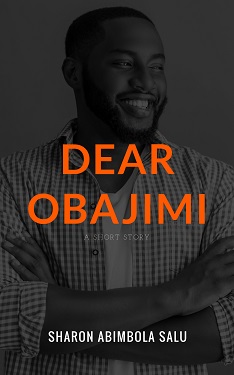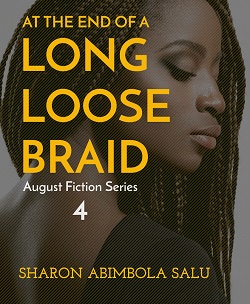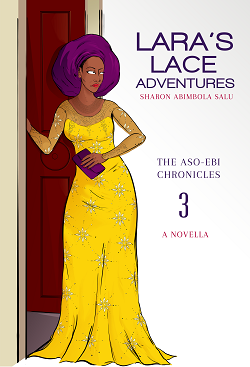It’s officially 4 days to Christmas! Just in case I don’t get to say it again, I want to wish you all a very Merry Christmas. We celebrate Jesus this and every Christmas. Only Jesus! 🙂 Today, I will be sharing another episode of our current Nigerian romance story, Falling in Love With My Best Friend. In this episode, we explore how Enitan and Tokunbo’s JAMB lesson sparks a new phase in their blossoming friendship.
If this is your first time stumbling on this series, welcome! Join the parry! 😀 You can start with Episode 1. Please feel free to share your thoughts and suggestions.
Okay, let’s get to it then, shall we?
Oh, have a marvelous week ahead. A very special week it is!
Episode 8: JAMB Lesson and New Beginnings
I immediately told Tokunbo I was going to the exact same JAMB lesson.
His reaction shocked me.
“Yipee! Yes! Yes!” he shouted, punching the air with his fists in apparent joy.
“Why are you so happy?” I asked, unsure whether Tokunbo was thrilled that he would not be the only teenager on our street, suffering through JAMB classes after regular school classes, or whether he was pleased that I knew the lesson he referred to.
He wasted no time explaining what exactly he was celebrating.
“I know someone there. I won’t just walk in looking like a JJC … or mumu.”
In that moment, without saying much, Tokunbo had shared with me, his personal fear: that he would have to wander through life alone, a solitary traveler.
I had always thought it was just women who had this fear, but that day, Tokunbo opened my eyes to the fact that fear is fear. It knows no gender.
I also understood then the anxiety, which he had kept well-hidden, about being forcefully uprooted, without his approval, from a school where he had developed friendships, some of which were three-years strong, and then transplanted into a school where he knew no one.
I expressed my surprise with a “Wow!” and added, to poke fun at him, “I hope you’ll be this excited when you see the Further Maths questions for JAMB. They can make a grown man cry.”
Tokunbo chuckled.
“I’m not an Olodo you know, right? I’m sure I’ll manage fine. Besides, I chose this.”
I was puzzled.
“What did you choose?” I asked.
“To take JAMB instead of SAT or A-levels.”
“Why? Your parents can afford to send you to yankee or jand for uni, right?” I asked, silently wondering if maybe what they said about all that glittered not being gold was true.
“Of course they can,” he replied, “and my mum even wants me to go to the US for uni.”
“But?” I offered, encouraging him to continue.
“But I’ve always told her I didn’t like the idea.”
I stood back to look at Tokunbo properly. What was this guy saying? What person would get the opportunity to study abroad, all expenses paid, and choose instead to “suffer” as I saw it, through a Nigerian university?
I had to hear Tokunbo’s answers for myself.
The look of wonder and incredulity on my face must have told Tokunbo what my mind was saying, because he said:
“Ahn, ahn? Why are you looking at me like that? Is it because I said I don’t want to jand for school?”
“Of course! In my entire life, I’ve never heard anyone say such a thing!” I spat.
“Well, I guess I’m the first then. There’s a first time for everything, abi?”
I nodded. He continued.
“I’m not interested in going abroad for school,” he shrugged. “As it is, my parents are divorced and I barely see my dad. But at least, I know he’s in this country. If I leave, it means that I won’t only miss my dad, but my mum too. And I’d have to take a plane to see Yele.”
“–Or Yele can take a plane to see you,” I suggested.
Tokunbo laughed.
“You don’t know her. Trust me ehn, it’ll be me coming to visit her, not the other way round.”
“Okay o,” I said. “So it’s JAMB for you then … At least for now?”
“Yup! JAMB it is,” said Tokunbo.
I told Tokunbo what I knew about the JAMB lesson, that although it was open to anyone taking or re-taking JAMB, most of those who attended were secondary school students like us who were already trying out for the exam, years before graduation and years before we would need the results.
Certainly, a good number of people who attended were ‘post-secondary school takers,’ older folks and those who had taken GCE, but our own age group dominated this particular JAMB lesson.
Located in the Onike area of Yaba, Future Champions Academy was owned by a certain Mr. Durodola, who taught some of the Mathematics and Science classes himself.
Like many businesses in Nigeria, they did not focus exclusively on one product. In their case, they did not limit themselves to preparing students for just one exam. Rather, like the tentacles of an octopus, Future Champions had its hands in several pies, that is, the tutors helped students prepare for other tests including: JSCE, SSCE, NECO, GCE, A levels, SAT, GRE and GMAT. They, however, stayed away from professional exams like ICAN exams because they had decided earlier on that it was wise to focus on their strengths. Tutoring students for professional exams was definitely not their strong suit.
My father arrived shortly after the banga soup was ready, and as he spoke to Tokunbo, I prepared the eba for dinner.
In a small food flask, I stored five cellophane wraps of eba: two for my mother and two for me. The fifth one was jara: it could end up in either my mother’s stomach or mine.
Its fate was yet to be decided.
But I knew she was bound to arrive soon and would want to eat almost immediately.
I would have wanted to listen to the story my father was telling Tokunbo, but I had to go and pick up my father’s shoes from Mallam Audu, who had been asked to polish them.
By the time I got back, Tokunbo had left.
Not long afterwards, my mother came home.
We sat down and ate dinner together. After my mother had finished her food, she noticed that there was still one extra wrap of eba left in the flask.
Leaning back in her chair and rubbing her belly affectionately, she declared:
“If I eat any more eba, people will have to start calling me Asake Eleba! But it’s better than Asake Alamala, abi Enitan?”
I giggled before responding with:
“I’d rather call you ‘Mummy!’ ”
With a glance towards the food flask, I asked: “May I?”
She nodded and began her regular post-meal ritual of sucking her teeth while staring into space. Meanwhile, I effortlessly polished off the last wrap of eba. As it went to join the earlier bits of my dinner in my belly, I listened to my mother narrate how the okra seller had tried to cheat her at the market, and how she had miraculously outwitted the woman.
After our meal, I went to wash the dishes, assisted by Yemi, who happily announced that Tokunbo did not eat before he left. Listening to Yemi, it was clear that he and Tayo harbored the irrational fear that Tokunbo joining us for dinner that evening would have shortened their ration.
From that time onwards, anytime Tokunbo and I ran into each other, at home or outside, we would stand and gist for a while. The days of the casual “Hello-Hi” greeting were over.
Amid the dry chill of Harmattan and the noise of local firecrackers known as banger, which on some days, people confused with gunshots and hurriedly fled indoors, Christmas came and left.
Then, it was time to strip the walls of old calendars because a week after Christmas, the New Year came upon us, whether or not, we were ready for it.
The New Year brought with it the promise and expectation of new things, the hope that unpleasant experiences that had darkened our days in past years would be far from us in the New Year, and the hope that only the best of everything would come rushing into our lives.
I was not the only one for whom the New Year was full of new beginnings.
For my brother Tayo who had to go back to school in Ogbomosho the second week of January, it would be the first time he would be taking mock exams for his upcoming SSCE exams. For Yemi, it was the first time he would be getting a seatmate who was a girl.
And for me and Tokunbo, it was the first time we would be attending the same school-related activity together.
For that reason, and many more unspoken reasons, I waited for JAMB lesson to commence with nervous excitement.
My typical routine was to go to lesson after school ended. Because my school was also located in Yaba, off Herbert Macaulay road, I could walk to Onike or take a cheap-fare Danfo bus past Sabo and straight to Onike. Most times, however, I walked, for no other reason but to save the transport fare and add to the pocket money my parents gave me.
On most days, the heavy go slow in that area, due to the presence of several schools, which let out their students at around the same time, made walking a very sensible option.
Once I got to lesson, I would first eat the extra lunch I brought for lesson, or on days when the extra lunch had been consumed at school, I would buy snacks at one of the eateries or fast food restaurants that dotted the area. The snacks I bought were usually the ones I could afford on a student’s budget like puff puff, sausage rolls, donuts, meat pies, chicken pies and yam balls.
The more expensive, deliciously marinated chicken barbecue with French fries or fried rice was something I ate only in my dreams because my allowance did not allow for this treat.
Combining my snack of choice with a sugar-packed soft drink like Coca-Cola or Mirinda pumped me with enough glucose to keep my eyes from swimming when our Maths teacher decorated the blackboard with complicated equations that seemed to have been written in Morse Code or in an ancient language understood only by green aliens from another planet.
Then, after lessons, I would take two or sometimes, three buses back to our home in Surulere.
That was my typical routine.
Sometimes, on my journey to JAMB lesson, I would be accompanied by a few schoolmates who either attended Future Champions Academy or one of the similar lessons close by.
One of those schoolmates was Tina.
In January, JAMB lessons had started the week our own classes resumed. So, there was no buffer, no week of grace, no easing into the extra tutorials we needed to slay the beast that was JAMB.
The first day of school was light compared to regular school days. It was almost like the teachers were teasing us and saying, “Enjoy this happy moment now, because we’ll soon turn up the heat and roast you all term long like boli!”
After the last school bell rang signaling the end of classes, I hit the road with Tina as my walking companion, headed for JAMB lesson. As I trekked from my school to Onike, the combination of nervousness and excitement that had been simmering in my blood all day caused me to walk a little faster than usual.
If I didn’t notice the marked increase in my pace, Tina certainly did. She wasted no time in voicing her disapproval.
“Wait now!” she groaned, panting as she jogged a short distance, until she caught up with me.
That was the fifth time she had had to catch up with me that afternoon and we had only been walking for ten minutes.
Tina was not happy.
“I said wait!” she wailed again as I began to overtake her. Tina was not impressed with my power walking.
“What is chasing you?” she demanded as she caught up with me. “You’ve just been walking fast as if they’re dashing people free cars at lesson! Na wetin?!”
“I don’t want to be late,” I lied.
There was no way I would ever admit to Tina that Tokunbo was the reason I was power walking to Onike in the hot sun, with sweat pouring out of my pores.
“My mummy won’t like it if she hears I got to lesson late,” I added, hoping that would get Tina off my back.
It didn’t work.
Instead, like a stubborn hound dog that has smelt blood, Tina refused to back off. She did not believe any of the rational but completely bogus explanations I gave her.
“Liar!” she said accusingly. “We’ll get there on time and you’ll even have plenty time to eat and gist sef. So you better tell me what’s really chasing you.”
“Tina, please leave me alone. Stop pestering me!” I snarled.
“You call this pestering, ehn? You haven’t seen anything o. All dis one na grammar. You better talk or else … Why am I even wasting my time? You kuku know I will still find out.”
I stubbornly refused to tell Tina what was really responsible for my rush to JAMB lesson that afternoon. So, she temporarily abandoned the matter, and switched to gisting me, whether I wanted to hear it or not, about a Mexican soap opera she was following on television. My occasional “Um-hmm” and “Okay” and “Eia” uttered every now and then did not satisfy her, as she kept accusing me of not paying attention.
Of course, she was right, but I was acutely aware that Tina was a certified basket mouth, and therefore, no secret, not even the ones which appeared to be harmless on the surface, was safe with her.
But there’s only so much power walking one can do on a hot Monday afternoon after a full day of classes.
In no time, I was feeling drained, more so by Tina’s constant talking, than anything else.
And no matter how hard I wished, a large, man-sized bird did not swoop down and carry Tina away to drop her on a deserted island where she would have coconut trees and rushing waves for company.
It didn’t happen.
Neither did my wish for Tina to suddenly lose her voice. No such luck.
Tina kept talking until we reached our JAMB lesson in Onike.
As soon as we arrived, I was relieved that Tina instantly abandoned me as she found other people she knew and went to fraternize with them.
“Peace at least!” I sighed in relief.
I went to look through a few classrooms to see if Tokunbo had arrived. He would be easy to identify because just like me, he would be wearing his school uniform.
But no matter how hard I looked, there was no sign of Tokunbo anywhere.
Feeling more than a little disappointed, I crossed the street and went to a nearby fast food restaurant, which was very similar to Mama Cass. I was pointing to a particularly large, delicious looking meat pie while the female attendant tried to identify the snack my greed had settled on, when I heard someone say:
“I’ll have what she’s having.”
And that was how Tokunbo announced his presence.
I felt a surge of joy mingled with excitement, and it was all I could do to stop myself from cheesing as we greeted each other.
The female attendant who Tokunbo had addressed this statement to looked like she would have loved to mash one of the yam balls on Tokunbo’s head, but she behaved herself. Her eyes said:
“We don’t do that here.”
Meanwhile, as we stood there, I assessed Tokunbo, my partner-in-hunger.
As I had expected, he was wearing his school uniform. It was the first time I had seen him wearing a secondary school uniform. All the other times when he had returned home from Ijanikin, he was wearing his school house wear. In retrospect, that house wear looked like a prisoner’s outfit. But unlike prisoners, the students went home at the end of each term.
Secondary school was not a life sentence.
Tokunbo’s school uniform was a short-sleeved shirt with long trousers. The trousers were dark blue, and the check-patterned shirt with large sky blue and gray squares were covered with the school crest. A larger, more legible version of the school crest was slapped onto the single breast pocket.
I believe the students were also required to wear a matching blazer that was the same shade of blue as the trousers to complete the look, but it was not on Tokunbo’s person that afternoon. Besides, the heat which we had escaped briefly once we stepped into the restaurant made wearing a blazer outdoors a stupid choice.
While we were talking, I saw the attendant out of the corner of my eye, wear disposable, transparent nylon gloves and pick out two meat pies and put them into separate bags.
Meanwhile, Tokunbo said:
“My mother’s driver just dropped me off and when I got inside, I saw someone wearing your type of uniform.”
“Really?” I asked, wondering just how many people from my school went to this same lesson, and which of them Tokunbo was referring to. Short of asking him to attach his brain to a projector, and show me flashing images of all the people he had encountered at Future Champions Academy that afternoon, I had to wait for him to tell me exactly who it was he had seen.
“Her name is Justina, but she said I should call her ‘Tina’ for short. Something about Justina not being cool enough.”
“Crap!” I thought. Of all the people Tokunbo could have run into at JAMB lesson, it had to be amebo, gossip-central Tina.
By now, I was sure she had put two and two together and deduced that Tokunbo was the reason for my hurried steps towards Onike that afternoon.
Aloud to Tokunbo, who did not know who he had just innocently referred to, I said:
“Oh, Tina! I see–” and left it hanging while my eyes wandered back to the sausage rolls and other snacks behind the extensive glass display.
Tokunbo got the message.
“Why? What’s wrong with her?” he asked puzzled.
“Wrong? Oh, don’t worry, you’ll see. Just be careful what you say around her.”
“It’s a bit too late for that o. I already told her I was looking for my girlfriend,” said Tokunbo, hurriedly leaving me to pay for both our snacks.
“Wait! What?!” I shouted just before he left. He turned around briefly as he handed the money to the cashier, and I caught a wicked smirk on his face.
Was he just rattling my chains or was he telling the truth?
When he came back with our meat pies, I descended on him with a torrent of questions.
“Are you serious? Why? What did you that for? Do you know what she’s capable of? Why did you lie?”
I went on and on and on, and would have continued except that I noticed that the entire time I was torturing myself with all these questions, Tokunbo looked like he was trying hard to suppress a laugh.
“What’s so funny?” I demanded. “Is any of this funny?”
“Yes now. Now, I know what you look like when you’re upset. Even cuter than when you smile.”
I shook my head and hissed, angry at myself for falling for such a stupid ruse.
Tokunbo led the way to a chair and table in a corner, one of the few ones at the restaurant.
“Okay. Can I at least buy you a drink? Though maybe I shouldn’t ‘cos I like your face like this,” said Tokunbo, still grinning mischievously.
I tried to kick him under the table from where I sat, arms folded across my chest, frowning, but I missed and kicked one of the wooden legs of the table instead.
As I yowled in pain, Tokunbo half-laughed, half offered consolation, saying:
“See, that’s why you should only practice karate at home! Meat pie and karate don’t mix!”
In spite of myself, that last bit had me in stitches, and after a few laughs, I had forgiven him. And myself.
Meanwhile, we sat down to eat with bottles of soft drinks to wash down the snacks.
As we ate, Tokunbo gisted me about his first day at St. Patrick’s College.
He said the students at his school were obsessed with showy displays evidencing travel abroad for the Christmas holidays.
Apart from the mandatory pictures at exotic destinations many Nigerians only saw on TV, they brought back colorful mementos: pencil cases, posters, CDs and anything else that could be crammed into a suitcase and hauled miles across the Atlantic on an airplane. Anyone who had the misfortune of not traveling to a climate where a white Christmas was the tradition was deemed “local.”
“So, I guess I’m a local boy then,” said Tokunbo, before popping the last bit of his meat pie, the hard crusty edge, into his mouth. I had eaten that bit first, and was finishing off the softer meat-and-potato-filled bit stuffed into the flaky crust.
“Indeed, you are very local,” I said, chuckling. “But come o, haven’t you janded before?” I said, thinking to myself that Tokunbo fit the bill of a guy who travelled to those exotic destinations for the holidays. He certainly looked like his family could afford it.
“Yes, I have,” he confirmed. “We used to go several times a year when I was younger. Not so much now.”
“Why?”
“Money,” said Tokunbo with a frankness that caught me off guard. “At least, that’s what my mother told me. She says when business picks up, we’ll go to Atlanta. We went to New York when I was in JSS2.”
I nodded in understanding, and a part of me questioned whether it was wise for Tokunbo to share his family’s financial issues with me, a non-family member.
But then, it struck me: he probably saw in me someone who wouldn’t go about spilling secrets into hungry, listening ears.
Left to me, however, and if I was in his shoes, I would never have told anyone that my parents were struggling financially. That was our secret, not anyone else’s.
In my mother’s words, “It’s not all the clothes in your house that you hang outside to dry.”
“Lucky you. I’ve never janded,” I said. “The farthest I’ve ever travelled is Cotonou, and that was for one primary school excursion,” I added, after a brief pause.
“It’s not a big deal. I’m sure you’ll visit many more places when you’re older.”
“I guess,” I said, wondering why Tokunbo wasn’t pointing at me laughing and shouting, “Cotonou-bound,” like I had expected. He didn’t deride me or make jest of something I had no control over, which for me, was unusual. Even the girls in my class, if they knew the Cotonou story, would never let me rest because just like Tokunbo, I attended a private secondary school. However, as I had already learnt, private school get level.
In my own school, if you travelled out of Lagos for the holidays, to another city in Nigeria where your parents owned additional property, like Abuja for instance, you were envied. Those who went beyond mere intra-country travel and were lucky enough to vacation abroad, were looked upon with awe and wonder as if they were angels who had descended from heaven, come to walk among us pitiful mortals.
Travelling abroad was not even on my parent’s agenda. They had their hands full trying to pay the school fees for three children.
While we were still talking, I suddenly remembered the real purpose for our being at Onike that afternoon.
“Ah! It’s almost time for lesson to start,” I said after consulting my wristwatch. “That Mr. Ilesanmi will pick on us if we come late. Oya, let’s go,” I said jumping to my feet and pushing the empty bottles to the center of the table as if they would fall where they were before.
We both hurried back to the classroom where our book bags had been left in Tina’s care.
Mr. Ilesanmi, a pudgy-faced, serious-looking man had already entered the classroom and was scribbling the word, “Mathematics” on the blackboard.
We all pulled out our exercise books and textbooks, along with math sets and other learning materials to follow along. Many of the concepts he covered that day were not familiar to those of us in SS1, as we had not yet covered them in school. But, it was like an advance class for us and we had been assured that we did not need any school prep classes before conquering those JAMB questions.
That was the selling point the JAMB lesson organizers emphasized to the hearing of our parents as well as those who, like us, were taking the university entrance exam well in advance of the time when we needed to prepare for university admission.
That day, we covered two basic subjects: Mathematics and English Language. The other subjects on the exam had to be taken selectively, depending on the course the student was going to study in the university. Those other subjects included Literature-in-English, Geography, Economics, and the trifecta for most science courses: Physics, Chemistry and Biology, shortened to “Phy-Chem-Bi,” but pronounced “Fee-Kem-Ba.” All those additional subjects were covered on different days during the week.
It made me uneasy that in the same class as us teenagers were women and men who were 2 or 3 times our age, parents who themselves had children our age or even older, and other students, people in their 20s, 30s who had re-taken the exam many times, so that now, we their younger ones, who ought to call them “Brother” or “Sister” or even “Aunty” or “Uncle” before pronouncing their first names, were sitting in the same class with them, as they prepared to re-take the same exam we would be attempting the first time.
It made me uncomfortable, but that was the reality.
And if the stories I had heard about uni were to be believed, my course mates in the university would consist of this same demographic. So, I guess this JAMB lesson was a good training ground for life in the university.
After lesson, Tina who had been trying to get my attention during the classes, but who I had completely ignored, finally cornered me and asked me point-blank:
“Who is that guy?”
She had asked this question in a loud whisper before adding, “He was asking for you.”
“He’s my neighbor,” I said, refusing to feed her with any more information. But Tina was not so easily deterred.
“Okay. Does he have a girlfriend?” she said, loud enough for Tokunbo and anyone with two perfectly good ears to hear.
I was furious.
“Look Tina, I don’t have time for this, okay? You can ask him yourself.”
I knew that the thinly veiled disgust in my voice would annoy Tina, and mentally prepared myself to make the journey home alone.
But she made a face, eyed me and hissed viciously, before strutting to where Tokunbo stood, introducing himself to some other guys in our class. Somehow, she got him to excuse himself from them, and pulling him aside, I heard her ask:
“Are you Enitan’s neighbor? I mean, is that all there is between you two, ehn? Fine boy like you,” she said, eyeing him like a piece of moist chocolate cake.
I just shook my head where I stood watching everything.
Some girls have no shame.
“Do you have a girlfriend?” said Tina, without even waiting for him to answer the preceding questions.
“Well … that position is still vacant,” Tokunbo teased. “And yes, Enitan is my neighbor,” he added, glancing briefly in my direction.
I quickly averted my eyes and around the same time I heard Tina yell to Tokunbo who was standing right in front of her:
“Hey, face me jo! Don’t look at her!”
Tokunbo slipped his hands into his trouser pockets, standing at ease.
Tina continued.
“So … how can I apply? Me sef, I’m a fine girl o,” she said, tossing invisible long locks over her shoulders and striking a pose. Tokunbo laughed at Tina’s preening. She certainly kept him entertained.
“I have to go now,” he said nodding towards the door where his mother’s driver had just appeared.
They gave me a ride home, and Tina went home with her mother who was in the area that day.
At the time, I didn’t realize it, but that day marked the beginning of a new phase of our blossoming friendship.
<<READ EPISODE 9>>










I so love the way you write….its like listening to a story being told or better still watching a series (your creative spirit no be here oo). more grease
Cedar: *blushing* Thank you so much for making my head swell! 😀 In fact ehn, that grease better come in leaps and bounds. I’m glad you’re enjoying the story.
Thanks for reading and commenting. 🙂
kudos sharon,I love the story,but it would be nice if you posted it twice a week,the time 4 posting is long.
Damsel: Yay! I’m glad to know you’re loving the story. 😀 Me sef, I’m enjoying writing it. Hehe!
Honestly, I would love to post every single day so it moves along faster, but time is an issue. 🙁
I’ll try to be more consistent though. Thanks for reading and commenting, Damsel. 🙂
As usual…Lovely and Fantastic
I was so much amused by the detailed description of events/objects in the story…Please don’t take too long to post the next episode .
Pelumi: Oh, you noticed the details! Yes! Makes me think I didn’t waste my time. 😀 I’ll try to put up the next episode soonest.
I appreciate you taking time to read and comment. E se pupo! 🙂
Hello dear where have you been ?? I really hope you’re fine
Pelumi: Awww! Thanks for asking after me. I’m fine o. I was taking a break, but I’m back. I appreciate your reaching out. 🙂
Hey Sharon!
Lovely story here. Secondary school get levels. True that one. But people get levels too.
I like the realization that sometimes people are terrified of being alone. And Tina get nerve oh. I admire that. Can’t wait for the next episode.
Uju (a.k.a HRH7): Yes o, people too get levels, not just schools. As for Tina, that girl doesn’t send o. She’s marching to her own beat.
Tina reminds me that in this life some people are never content to just let life happen; they make things happen. Spunky Tina!
Thanks for reading and commenting. 😀
Sharon, this episode put a melancholic smile on my face. It took me back to a time of innocence and seemingly mundane burdens. A time when my biggest problem in life was deciding between coke and fanta or Mr Biggs and TFC. Ah! Growing up is tiresome. 😀
Asake Ladoja is a funny woman. But I think Alamala is way better than Eleba, that fluffy black mass makes my tummy happy.
Hahahah! I remember “Fee-Kem-Ba.” JAMB lesson was a place where crushes and puppy love thrived.
Lol @ “So … how can I apply?” Tina is a sharp babe o, if Mohammed will not come to the mountain, the mountain will go to him.
Nicely written as always.
Nedoux: I love how you said it: “A time when my biggest problem in life was deciding between coke and fanta or Mr Biggs and TFC.” Well said, ma’am. 🙂 How come it always had to between Coke and Fanta? Lol! It’s like 7UP and Schweppes and the rest were just wasting their time. Now, we have to worry about grown-up stuff: ankara v. lace. So, so tiresome. *evil grin*
Lol @ Alamala v. Eleba. For some reason, I always think amala requires more effort than eba, so for me, I’m on #TeamEleba. Hehe!
I’m glad you remembered “Fee-Kem-Ba.” I myself only took “Ba.” “Fee” and “Kem” were not my friends. 😉
Tina no dey look face. She goes after what she wants, true true.
Thanks for the kind words, Nedoux. I’m glad you enjoyed this episode.